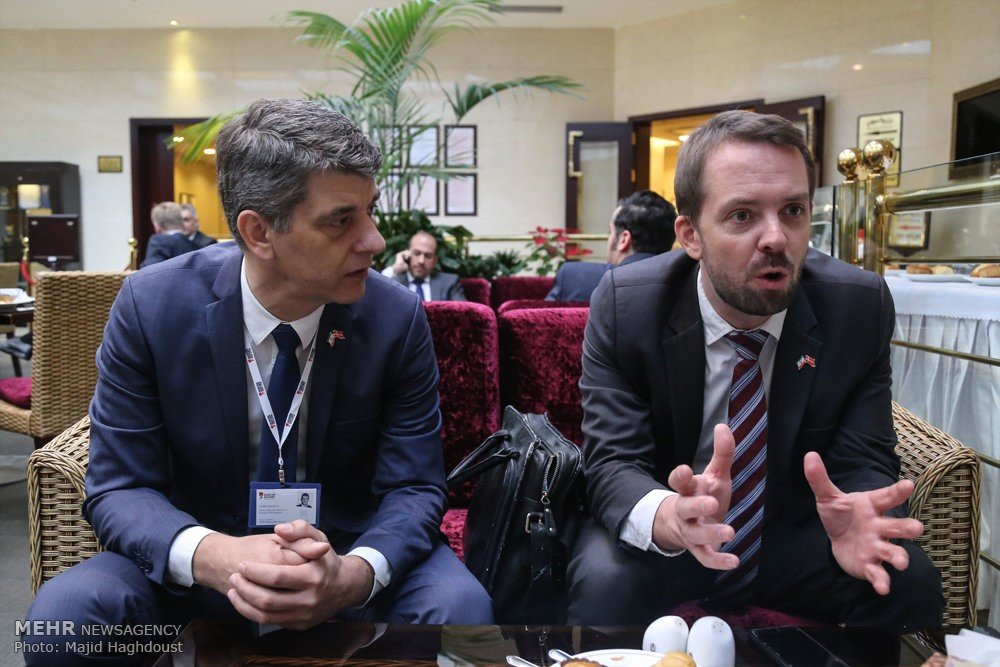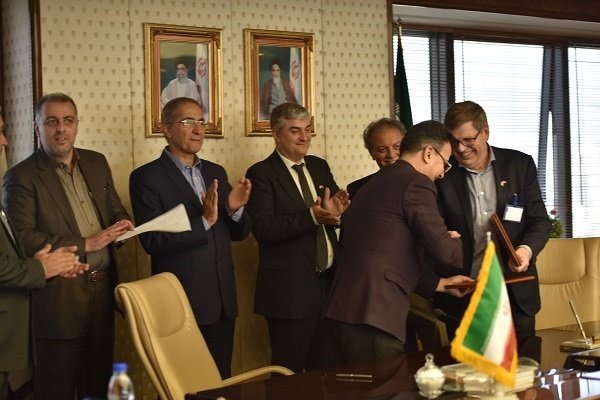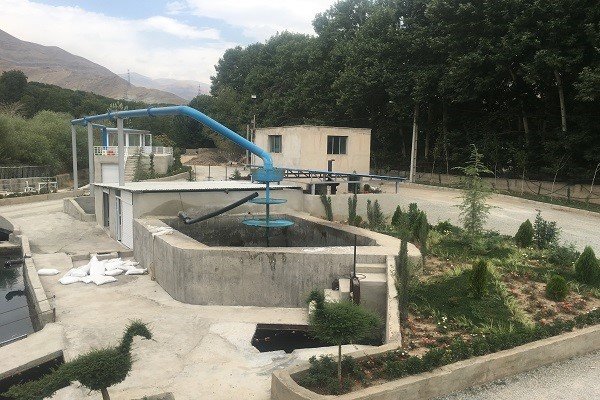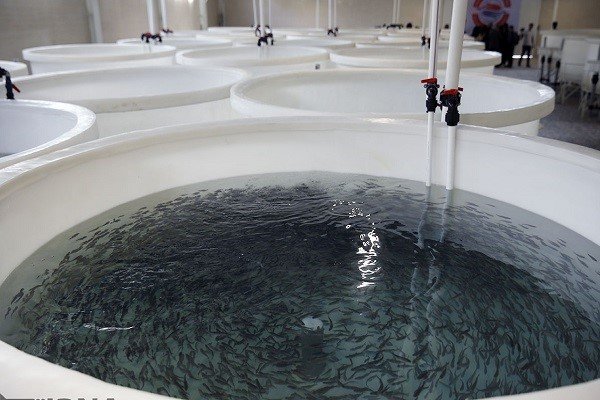Bright future ahead with Iran’s competencies, Denmark’s technology

TEHRAN – Since the lifting of the international nuclear related sanctions against Iran after the implementation day of JCPOA in 2016, Iran is again open for business in many areas providing grounds for the boost in bilateral and trade relations between Denmark and Iran.
During the years of sanctions, trade and investments in Iran in many fields was not possible for foreign companies. The implementation of Iran’s nuclear deal with the 5+1 group of countries, which is known as the Joint Comprehensive Plan of Action, and removal of sanctions imposed on Iran affected Iran’s relations with many states, including improving the conditions for Danish companies trading and engagement inside Iran.
Since the sign of historic nuclear deal two years ago, Danish trade and economic delegations have poured into Iran to invest in the country’s newly opened economy. The recent developments in the bilateral and trade relations between Denmark and Iran have improved the conditions for Danish companies to trade and get engaged in Iran in such a way that Danish export to Iran has increased by 57 % the first 11 months of 2016, compared to the same period of 2015.
Danish companies are globally renowned for their key technologies and expertise within water management and water industry, whether it is ground water, drinking water, process water, wastewater, urban water issues, etc.
During the current week, a Danish energy delegation paid visit to Iran, for the first time after 67 years, to sign MoUs with Iranian counterparts in the field of water supply and management, and aquaculture.
In light of the needs in Iran, especially in the field of efficient water solutions, there is an opportunity for Danish companies to export technology and expertise to Iran.
Since the sign of historic nuclear deal two years ago, Danish trade and economic delegations have poured into Iran to invest in the country’s newly opened economy.Since improving water management and efficiency is among the key priorities for the Iranian government, Danish technology on this issue is highly demanded in order to preserve Iranian agriculture and prevent a future water crisis.
Since the sign of historic nuclear deal two years ago, Danish trade and economic delegations have poured into Iran to invest in the country’s newly opened economy.To elaborate more on this opportunity for the Danish companies in Iran, Mehr News correspondent Lachin Rezaian sat with the Head of Member Services and Business Development Halldor Halldorsson, Deputy Head of Mission at Denmark’s Embassy to Tehran Malte Moller-Christensen and Iran’s Mahisara’s Director of Operations Ali Salehi to discuss the realization of water technology in Iranian different sectors by Danish companies.
Denmark is leading in water technology
Moller-Christensen classified the visit of Danish companies to Iran in two major tracks: water technology and aquaculture, stressing that in both Denmark enjoys very long-standing expertise.
“Most of the provinces in Iran suffer from water problems and they need to save a lot of water. Denmark’s water technology can help save water in Iran with very high efficiency in its using,” he noted.
Aquaculture, he went on to say, is about breeding fish, not in sea but in protected environments fish.
Pointing to the delegation’s trip to Karaj, Alborz province, Moller-Christensen said there is a Fish arm in the city, where they are breeding fish and sell them to the market. This is a very hard work. If the Co2 rate changes for example they may die. The technology the Danish companies here are providing can help really make it so efficient so that fish may have very low mortality rate and you can get bigger fish with less money.
He asserted that two major Danish banks are also in Tehran to discuss ways to provide credits for the Danish companies to do large scale projects in Iran.
He said the presence of Danish banks in Iran is not a new issue; “on 21st of September this year, Denmark's Danske Bank signed a €500 million finance contract with 10 Iranian banks, becoming the second European lender to ink such an agreement with Iran.”
Even though Danish export to Iran is generally increasing and there is a considerable Iranian interest towards Danish technology and services, there is still a range of challenges on the way.
Danish export to Iran has increased by 57 % the first 11 months of 2016, compared to the same period of 2015.Regarding the issue, he said “we are really approaching to the resolution of financing and banking problems for investment in Iran which is not easy because of the American policies.”
Some of the major challenges when doing business in Iran is the lack of liquidity and transparency in the financial sector, Moller-Christensen noted.
Halldor Halldorsson also shared his views on current situation regarding Iran and Denmark ties.
“The important thing here is the technology and knowledge transfer, the cooperation and expansion of ties between the two countries, especially after the implementation of JCPOA, signed on July 14, 2015. This of more importance for us and the other is the normalizing the whole banking sector to support trade,” he reiterated.
He referred to the sign of 3 Memoranda of Understanding (MOUs) on Monday, in the presence of Iranian Deputy Energy Minister Alireza Daemi and Danish Ambassador Danny Annan, at the venue of Ministry of Energy; “this is the first time such a delegation in such level comes to Iran for expanding ties; we had another back in January when 17 companies came to Iran with focus on industry. This time we are more focusing on water technology and aquaculture.”

He underlined that Iranian companies are very good in doing such technology, they can build pipes, make fish farms, lots of things, but what they need is to be more efficient with the modern technology.
“Iran has a lot of competencies in the field of technology and what Danish companies only do is to add more knowledge and know-how to Iran’s capability,” he underlined.
Pointing to the development of ties during post-sanctions era, Halldorsson said “the transfer of technologies to Iran was hard before the JCPOA was signed, however, now Rouhani’s government has paved the way to boost ties, a big step in the very short time.”
Transfer of technology, but not equipment, is the key for Iran
Mahisara’s Director of Operations Ali Salehi also shared his views on the recent developments regarding Iran and Denmark ties in the field of aquaculture.
Salehi directs a Fish Farm called Mahisara in Karaj, where trout fish is protected, feed and multiplied in especial containers with critical conditions.
Mahisara was established by late Dr. Motamed in 1959 and was introduced as the largest and the only farm at the time to harvest cold-water fish breeds. In 3 years of design and establishment by Danish engineers, the farm received the title of largest farm also to produce trout breeds. Since the creation of this company, its main goal has always been to bring the highest quality of product to Iranian households, having the high cost as a secondary priority.

Salehi said the new era in EU relations with Iran would have a direct and positive influence in very early future of aquaculture industry, as well as other sectors. Having a transparent goal and providing EU companies with non-exaggerated realism would only help realize the full potential and correct pathway to a very bright and prosperous future in this era, he noted.
Buying business is not a profitable way of doing business, it’s just spending money but if you learn the know-how and have a strategic partner it would work much.Pointing to the presence of Danish delegation in Iran, Salehi said the collaboration is a good example of how Danish research can take on international tasks beyond the borders of Denmark. Danish water technology companies have the expertise to help with the demand caused by the drought; “Denmark is also a leading market in relation to managing water resources sustainably and reducing non-revenue water to secure drinking water for future generations.”
Two years ago, he said, we went to Denmark and signed a new agreement on the modernization of the farm. Denmark has been always on the front line in technology upgrade.
On banking issues, he underlined “so far we have done very few banking processes with them. There are some banks in Denmark they are happy to provide long-term loans but it has not been realized yet. We hope it does soon. We do purchase things from them directly and very easily and we have not encountered any problems so far. But in terms of how much credit they can provide us with, I think there is an export credit fund. But in terms of guarantees the problems arise. What kind of guarantee we can give them and what they can have from us. So far we have not been able to provide them with that kind of guarantee.”
He also touched upon the process of technology transfer through Danish side; they transfer the genetics, sperms, seeds and eggs suitable for Iranian environments. There are many countries in the world that can provide us with these services but they are not suitable for our environment. Denmark surprisingly enough provides suitable services for us. So the transfer of technology is the key for us. We already started the negotiations with the companies in Denmark on the technology transfer. Technology transfer is being done but the equipment, it is not happening yet. Denmark has done years of research on what they provide others with, they are exactly aware of what they do. You can buy equipment from anywhere in the world but technology and know-how, no.

Their presence in Iran, he concluded, is absolutely promising. “We started this business, aquaculture, before Denmark and Norway, we are the leading in the world. After the sanctions there would be less excuse for any other company to come to Iran, especially Denmark and it’s an opportunity for us to learn as much as possible from them, buying business is not a profitable way of doing business, it’s just spending money but if you learn the know-how, and if you can have a strategic partner it would work much.
“Technology is the key to success because they have done something right, they have started after us but are way ahead of us in this sector,” he added.
